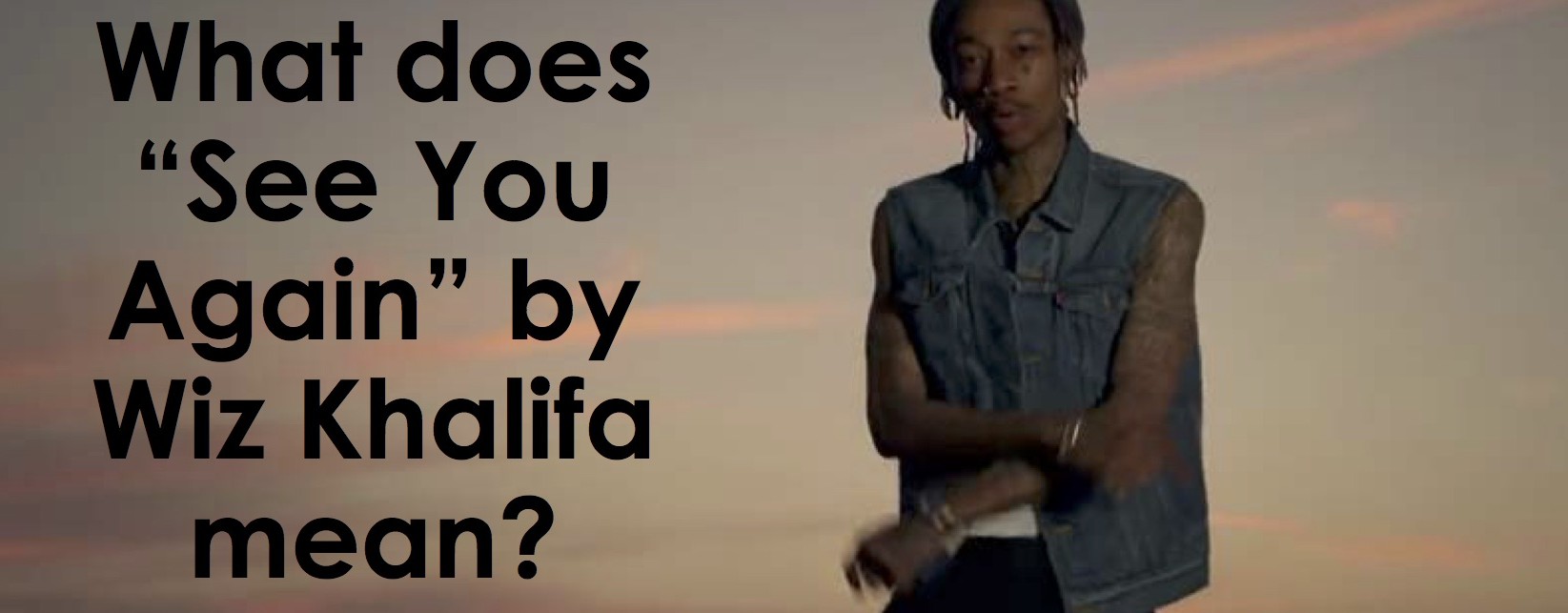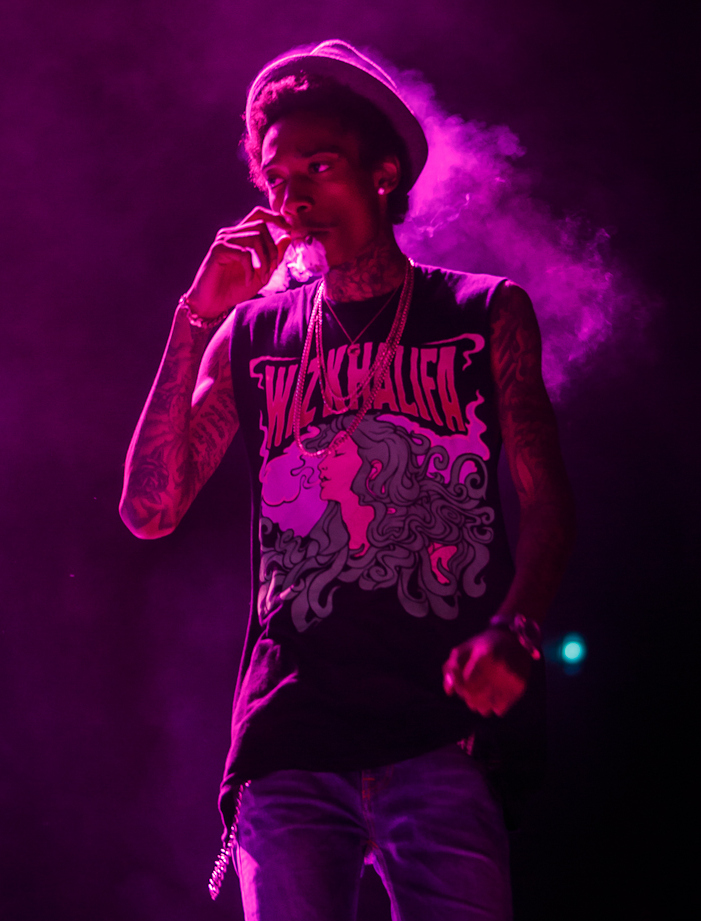What does "See You Again" by Wiz Khalifa (ft. Charlie Puth) mean?
Song meaning: Wiz Khalifa's Billboard destroying hit single "See You Again" that features Charlie Puth is a tribute to the actor Paul Walker who died in a car accident while filming Fast and Furious 7. Read on to find out more! The song was originally created by Charlie Puth, and then Khalifa was invited to add rap verses to the song. It plays at the end of Fast and Furious 7 as Paul Walker and Vin Diesel's characters drive separate ways. The official music video for the song shows this scene as well.
The song, which peaked at #1 on The Billboard Hot 100 chart and has been on the chart for 28 weeks, is about Paul Walker and is to commemorate his passing. To achieve this, the song makes heavy use of Charlie Puth's emotionally charged vocals and Wiz Khalifa's relationship-focused raps to show how much Paul Walker meant to others. "See You Again" is an ode to a lifetime of friendship and closeness.
"See You Again" Lyrics Meaning
Charlie Puth begins the song with a chorus. He sings, "It's been a long day without you, my friend / And I'll tell you all about it when I see you again." The songwriter looks forward to being reunited with his friend (even though he doesn't explain how). Charlie sings, "We've come a long way from where we began / Oh, I'll tell you all about it when I see you again." The narrator and Paul Walker have been friends for a long time and had many successes together. Those successes continue for the still-alive narrator who looks forward to catching up with Walker.
When it's Wiz Khalifa's turn to rap, he focuses more on the good old times shared by those who loved Paul walker. (Interestingly, no records show up that indicate Khalifa or Puth knew Walker.) He sings, "Damn, who knew? / All the planes we flew / Good things we've been through / That I'll be standing right here talking to you / 'Bout another path." The song's narrator misses Walker and wishes that he could have him back. He asks himself how anyone could have predicted that even though he and Paul did so much together that one day he'd be remembering Paul's death. The image suggests the narrator is standing by Walker's grave, talking to himself.
The "[other] path" that Khalifa mentions is different from all their paths together; those paths were on earth and were adventures they had while still alive, but now Walker has gone elsewhere that Khalifa's narrator can't follow him to.
Bringing back the traveling imagery, Khalifa sings, “I know we loved to hit the road and laugh”–possibly a reference to the Furious movies, since Paul Walker did so much driving in them.
The narrator sings, “But something told me that it wouldn’t last / Had to switch up / Look at things different, see the bigger picture.” Khalifa is explaining that even though things used to seem to be so good, they couldn’t stay that way forever. Life isn’t just about successes–sometimes death happens and can bring things to a sudden halt.
Khalifa continues singing, “Those were the days / Hard work forever pays / Now I see you in a better place.” While their time together was wonderful and the hard work they put in together will be remembered, Khalifa’s narrator likes to think of Walker as being in an even better place. No matter how good their time was together, he wants Paul Walker to be even happier now.
Before reverting to Puth for the chorus, Khalifa sings his family-focused pre-chorus: “How can we not talk about family when family’s all that we got?” He calls Walker family though neither is Khalifa family to him nor are most of the people the song is for. But what does make Walker family for the narrator is that Walker was “standing there by side” for “[e]verything I went through.”
To finish his pre-chorus, Khalifa sings, “And now you gon’ be with me for the last ride.” The memory of Paul Walker will stay with the narrator until he dies, reminding him of the good times and supposedly encouraging him onward.
After Puth sings the chorus, Khalifa comes back for a bridge. This time it’s about friendship and brotherhood and how those things are created. He sings, “First you both go out your way / And the vibe is feeling strong.” For a friendship to begin, people need to step out of what they would normally do for themselves and help someone else. Khalifa sings that you can then feel the friendship growing.
He continues, “And what’s small turn to a friendship / A friendship turn to a bond.” The friendship (supposedly one that the narrator forged with Paul Walker) continues to evolve and becomes a bond (or something that ties things together and often can’t be broken). This lines up with the next line: “And that bond will never be broken / The love will never get lost.” Their friendship will never die.
Khalifa touches on the concept of brotherhood when he sings, “And when the brotherhood come first / Then the line will never be crossed.” There are boundaries in every relationship that people can abuse, but if friendship matters to people, they are less likely to hurt each other. When it comes to Paul Walker and his friends, those friendships “[e]stablished it on [their] own / When that line had to be drawn.” They cared about the relationship enough to watch out for each other.
The bridge finishes with “And that line is what we reach / So remember me when I’m gone.” As a Genius.com user suggests, this last “line” could be a reference to the finish lines from the Furious movies that Walker and his friends reach many times. They accomplished something great together–they won their races–and now they’re bond is forged tighter for having had to struggle together.
Charlie Puth finishes the song with an emotionally powerful “re-intro” that leads back into the chorus: “So let the light guide your way, yeah / Hold every memory as you go / And every road you take, will always lead you home, home.” Puth seems to be singing from the usual narrator’s voice as he wishes Walker well on his next great journey–the journey after death. He wants him to remember the good times and find a new home. The guiding light will help him to arrive there safely.
What’d you think of “See You Again” by Wiz Khalifa and Charlie Puth? I asked my students in class what they thought of it, and several mentioned that it was a good song to cry to. It’s emotionally powerful, and I’d like for you to share how it’s touched you. If you share soon enough, I may even mention your comment in my podcast tomorrow!
Thanks for reading!






